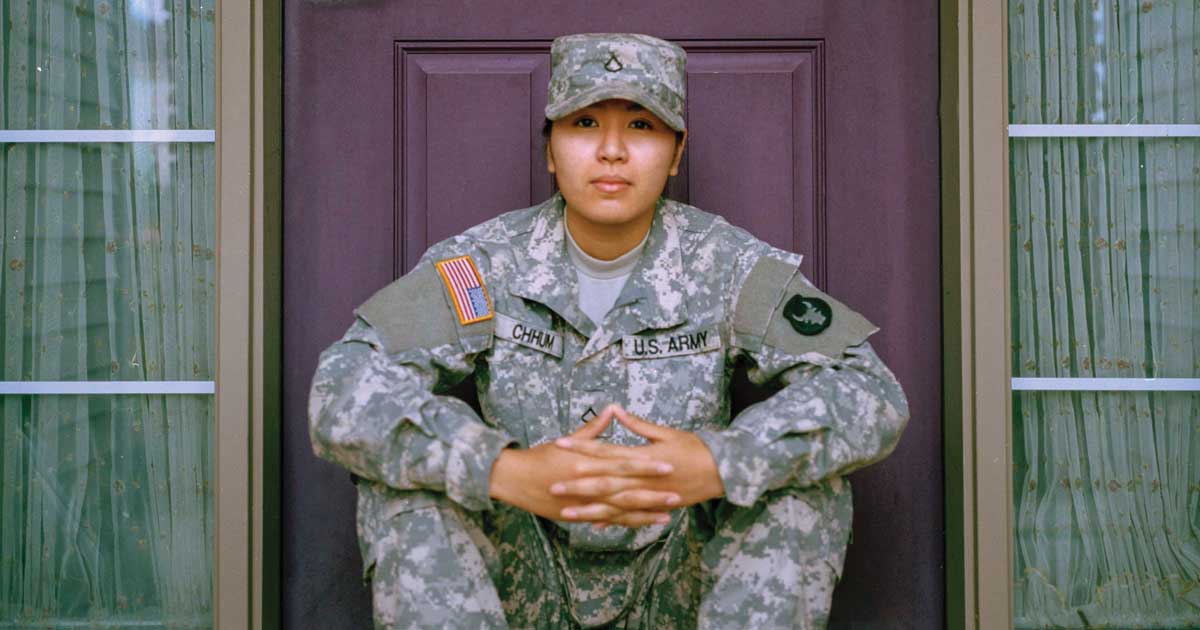When Sandra Washburn*'s daughter, Jennifer*, came to her in the summer of 2018 expressing an interest in joining the Air Force, Washburn was surprised—and worried.
"I have no experience with the military and wasn't sure how it would affect all of our lives," said Washburn, noting that though a military career wasn't always on Jennifer's radar, the stability and regimen drew her in. "She's very athletic and the military responded positively to her abilities. She also knows a family that had a daughter in the Air Force."
The more Washburn learned, the more she become supportive of her daughter's choice, though other family members weren't as on board.
"One of her grandmothers was very vocal that she didn't think it was a good idea," said Washburn, adding that Jennifer's father in particular dragged his feet in being positive or supportive. "He wanted her to go into a college ROTC program or apply to the Air Force Academy, rather than enlisting."
Washburn and her family found support in a variety of Facebook groups specifically for military parents, in addition to the recruiter, who helped answer many of their questions and concerns.
"It was also nice that I had a friend whose son enlisted and left one week before Jennifer did," said Washburn "We helped each other when we were feeling sad, anxious and happy!"
Retired Maj. Robert Ware, U.S. Army, JROTC Instructor at Union High School in Grand Rapids, said taking time to do research on the military is an integral piece of the puzzle.
"Learn about the pay and benefits of military service and talk to someone who has been in the military—especially someone who is retired. They've experienced the military for 20-plus years and can offer many insights," said Maj. Ware. "Help your child get good information on the career they're thinking about, whether it's a military or civilian career, so they can make an informed decision."
Many times, Ware notes, a child's impression of military service is based on what they've seen in movies or video games.
"Help your child understand that the day-to-day things in the military are not always the 'cool' and 'exciting' things they've seen in movies or games," Ware said, stressing the importance of being with your child when they talk to a military recruiter, for it to be a friendly, informational meeting. "Children are going to make decisions about jobs and careers regardless of parental support. But when a child knows their parents are supportive of their career choice, they are more likely to ask them for help or advice."
Locally, Grand Rapids Public Schools offers JROTC programs in Union High School, Ottawa Hills High School and Innovative Central High School. The instructors, said Ware, are all retired Army personnel and would be able to answer questions that parents may have.
In January 2019, Jennifer enlisted and began her path toward becoming a Signals Intelligence Analyst. In this role, she'll use sophisticated equipment to analyze and identify foreign activity and communications from electromagnetic emissions, before relaying findings to the appropriate commanders who then respond to critical situations.
"I think that's the hardest part: Realizing your children are becoming adults and letting them make adult choices," said Washburn, who emphasizes it's about creating a new normal. "With the military, it's also daunting because there are long periods of time where there's no communication, like during basic training, and knowing they'll be away from family for long periods of time."
Above all, Washburn advises continuing to show your child love.
"Listen to them and be proud of them for making such a difficult and demanding choice."
*Not their real names.
RESOURCES: goarmy.com/parents | airforce.com/for-families | navy.com/what-to-expect/for-families | marines.com
Written by Sarah Suydam, Staff Writer for West Michigan Woman.
This article originally appeared in the Feb/Mar 2020 issue of West Michigan Woman.




